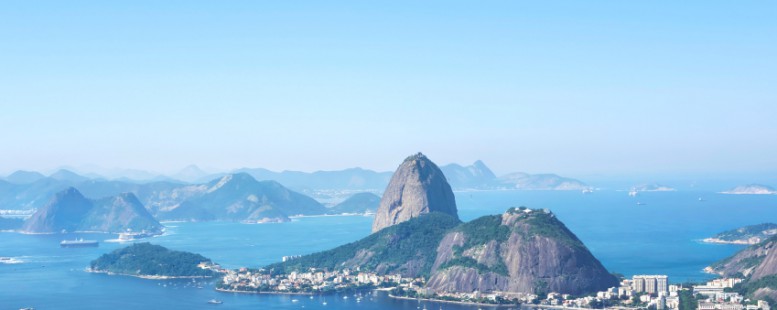Our Opinion: 2022
Prospects in a divided Brazil

Brazilians reacted passionately to last weekend’s election win for Lula da Silva – or just ”Lula.” The supporters of the socialist candidate took to the streets across Latin America’s largest economy to celebrate with red flags and convoys of hooting cars.
The passion was understandable, given that the bitter election had been billed as a historical crossroads for the country. The two rivals were far more similar, in economic terms at least, than their supporters would like to admit. After all, in their respective terms as president both spent too much, interfered in the national oil company, Petrobras, and were subject to plenty of corruption claims. Brazil grows despite – not because – of its politicians and regardless of the result, the country should reward investors. Brazil will benefit from the two major themes driving the world economy over the next two decades: the energy transition and global population growth.
In theory, Lula comes with some drawbacks for investors. One major difference between the two candidates is that Bolsonaro privatised state firms, while Lula wants them to play a bigger role in the economy. He is also keen to do away with the fiscal restriction that caps budget growth to the level of inflation in the country. Yet Lula’s history shows he is a more moderate president than campaigner – he was president from 2003 to 2010.
And even if he wanted to be radical, Brazil’s political system of proportional representation limits his power. No party ever wins a majority in Congress, the federal legislative body, which means the president must cut deals with the “Centrão” (big centre) block of lawmakers.
Another check on Lula is that while he won the presidency, centre-right politicians secured the Congress in the same election. Bolsonaro’s party also controls three of Brazil’s most populous states, which is significant in the country’s federal system: most of the regulations that affect businesses are set at a local level.
The most valid criticism of Lula is that his administration was involved in the largest corruption scandal in Brazil’s history. However, the consequence of that is improved protocols and increased scrutiny: it is hard to imagine his government behaving in the same way this time around.
Lula’s handpicked successor oversaw the worst recession in Brazil’s history, but his own tenure coincided with an economic boom. Indeed, given the record of previous Brazilian leaders, you would have to say that Lula – much like Bolsonaro – was a relatively competent, pro-growth president.
The most significant aspect of the Brazilian election isn’t who won, but how efficiently the system worked. An incredibly tight vote – 50.9% to Lula and 49.1% to Bolsonaro – was decided within hours and key allies of Bolsonaro quickly congratulated Lula.
Brazil is one of the most efficient large democracies in the world and a marked contrast to big emerging- market rivals Russia and China. The democratic dividend is often ignored by investors when autocracies are doing well, but the erratic decisions of Vladimir Putin – and, to a lesser extent, Xi Jinping – show why investors should value democracies.
Brazil has shone this year amid a historic sell-off of emerging market. Brazil offers something the others can’t: democracy and growth. Brazil’s GDP growth is set to come in at 2.6% in 2022, above analysts’ expectations at the start of the year and only just behind China’s probable 3%.
One reason is that Brazil has benefited indirectly from the Ukraine war. Soaring commodity prices for food, fuel and raw materials have fuelled Brazilian exports. As a result, the Brazilian real is one of the few currencies that has managed to rise against the all-powerful dollar and is up by 7% so far this year. But while the commodity crunch caused by the war is hopefully a short-lived phenomenon, Brazil’s world-leading agribusiness, mining and energy industries will continue to thrive thanks to the energy transition and the growing global population.
Brazil will have lower annual inflation than the UK. The success is down to the central bank, which was granted independence by Bolsonaro. It began to increase rates in March 2021, while the hapless Bank of England was still insisting that inflation was transitory.
The world can’t fight climate change without Brazil. As pressure grows to slow global warming, more money will flow into the country. Its main asset is the Amazon rainforest, which is home to more biodiversity than anywhere else on the planet. A healthy Amazon rainforest would act as the planet’s lungs, absorbing huge quantities of CO2 and releasing fresh oxygen.
Under Bolsonaro, deforestation increased, which led some scientists to worry that fires in the rainforest were releasing more CO2 than it could capture. Lula has a proven record of combatting deforestation when he was last president and international donors such as Norway have already announced plans to resume funding Amazon projects.
Lula’s stance on the environment is great for the planet, but it will also yield economic benefits. Deforestation was a major sticking point in ratifying
a trade deal between the EU and Mercosur, the South American trade bloc of which Brazil is the largest member. Brazil’s next globally significant climate-change asset is its mining industry.
You wouldn’t think it from the press coverage of the election, but Brazil has been the standout emerging market in 2022. Despite that success, its stock-market still looks attractive on a price/earnings (p/e) ratio of just seven compared with the MSCI Emerging Markets average of ten.
11th November 2022
